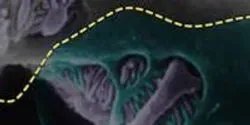Clinical Research Labs

Using a powerful data-crunching technique, Johns Hopkins researchers have sorted out how a protein keeps defective genetic material from gumming up the cellular works. The protein, Dom34, appears to “rescue” protein-making factories called ribosomes when they get stuck obeying defective genetic instructions, the researchers report in the Feb. 27 issue of Cell.

Cornell University researchers report they have discovered direct genetic evidence that a family of genes, called MicroRNA-34 (miR-34), are bona fide tumor suppressors.

The Clinical Laboratory Management Association's premier educational event, KnowledgeLab 2014, May 4-7 in Las Vegas, provides a forum for laboratory leaders from all over the world to connect with their peers, grow their knowledge and lead the charge to address key challenges in the laboratory.

After a decade of debate, Brandeis University scientists have a clear picture of a controversial protein.

Before doctors like Matthias Kretzler can begin using the results of molecular research to treat patients, they need science to find an effective way to match genes with the specific cells involved in disease. As Kretzler explains, finding that link would eventually let physicians create far more effective diagnostic tools and treatments.













